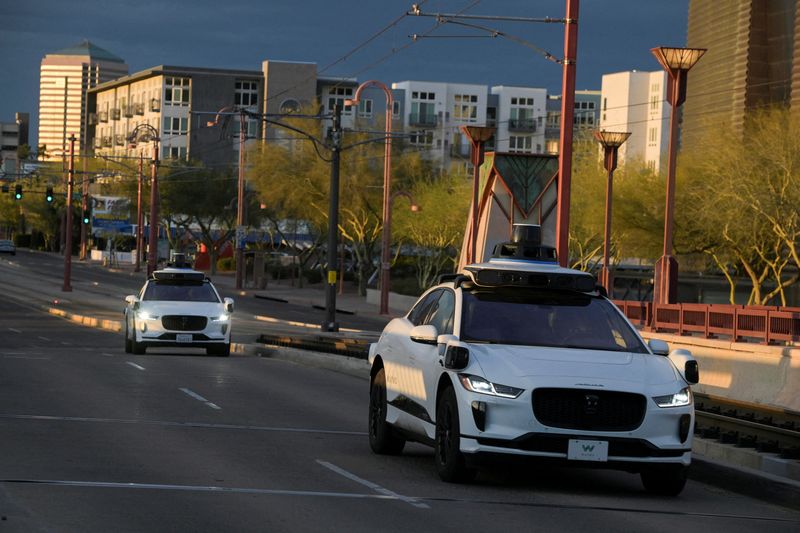By David Shepardson
WASHINGTON (Reuters) -The National Highway Traffic Safety Administration said Friday it has learned of nine additional incidents that raise concerns about the performance of Alphabet (NASDAQ:GOOGL)'s Waymo self-driving vehicles.
Earlier this month, the U.S. auto safety regulator opened an investigation after 22 reports of its robotaxis exhibiting driving behavior that potentially violated traffic safety laws, or demonstrating other "unexpected behavior," including 17 collisions.
In a letter to Waymo released Friday, NHTSA said it has learned of 9 additional similar incidents.
The agency said several incidents under investigation "involved collisions with clearly visible objects that a competent driver would be expected to avoid."
NHTSA said "reports include collisions with stationary and semi-stationary objects such as gates and chains, collisions
with parked vehicles, and instances in which the (automated driving system) appeared to disobey traffic safety control
devices or rules."
The agency asked Waymo to answer a series of questions by June 11 about the incidents and provide video for all of the incidents.
Waymo, which did not immediately comment Friday, earlier this month did not address specific safety incidents cited by NHTSA but said it was "proud of our performance and safety record over tens of millions of autonomous miles driven."
NHTSA said it is concerned that Waymo self-driving vehicles "exhibiting such unexpected driving behaviors may increase the risk of crash, property damage, and injury" and added that a number of incidents occurred "in the proximity of other road users, including pedestrians."
The investigation is the first stage before the agency could demand a recall if it believes the vehicles pose an unreasonable risk to safety.

This is the latest in a series of investigations opened by NHTSA into the performance of self-driving vehicles after it initiated probes into General Motors (NYSE:GM) Cruise and Amazon.com's Zoox (O:AMZN).
In February, Waymo recalled 444 self-driving vehicles after two minor collisions in quick succession in Arizona, saying a software error could result in automated vehicles inaccurately predicting the movement of a towed vehicle.